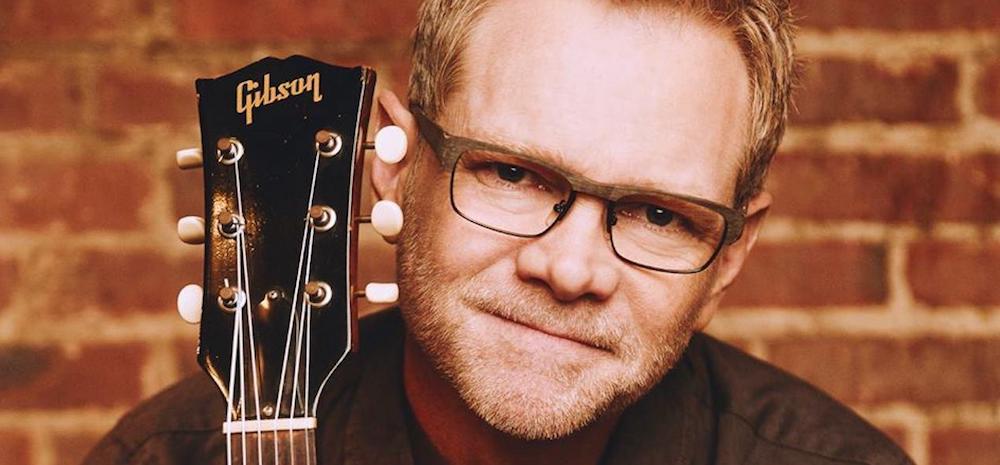Five-time Grammy-winning artist Steven Curtis Chapman is synonymous with Christian music. For the past 30 years, the industry mainstay has given believers such great hits as “For the Sake of the Call” (1990), “The Great Adventure” (1992), “Let Us Pray” (1996), “Dive” (1999), “I Will Not Go Quietly” (1998), “Live Out Loud” (2001), “God is God” (2001), “Cinderella” (2008), “Glorious Unfolding” (2013) … (the list could go on and on).
Chapman is a consummate musician and poetic storyteller who continually reaches into the lives of millions of fans around the world with his soul-stirring songs. And, now after three decades of releasing beloved Contemporary Christian music, he’s recorded something new…worship songs.
Worship and Believe is Chapman’s first-ever worship album. The 11-track record, released by Essential Worship and Reunion Records, has an interesting origin story. In a recent interview, Chapman shared all about it, his take on worship music, and how the loss of his daughter Maria in 2008 led to Worship and Believe. Here are excerpts from that phone call:
On stepping into the world of modern worship music…
Steven Curtis Chapman: With regards to corporate worship music, I love it. I love participating in it, but I’ve grown up in a little Baptist church in Paducah, Kentucky, singing the hymns, singing those songs. Those have been some of the ones that I’ve most connected with…. I remember that first wave of those corporate worship songs, and just the power of those, and the familiarity, and everyone knows and can sing those without having to look at the hymnbook.
As much as I love those songs, if I was really honest, there were times when I would even almost feel like I don’t know if I’m getting everything that everyone else is getting from this experience, or from singing these songs. Am I not connecting with them as deeply as I should? And it wasn’t anything wrong with the songs or anybody else. It was something wrong with me, you know. It was like, ‘am I not spiritual enough? Am I not really understanding the depth of this?’ Yet still, very much loved and loved leading worship. It’s always been something that when I get the opportunity to just lead people in these songs…I kind of disappear. It’s not about me singing them my songs, but it’s just, ‘let’s sing this together.’
On how penning worship songs differs from the songs he’s used to writing…
Chapman: It’s really a different. It’s a different craft. It’s strange. I said earlier to someone, it’s almost like I’m a woodworker and I make chairs. I’ve honed that craft for years and years of making just beautifully crafted, solid chairs. Then all of a sudden, I’m in a situation of, ‘hey, would you make some cabinets for me?’ And it’s like, ‘well, I’m a woodworker. I have the tools, but it’s a whole different craft.’ While it’s the same, it’s very different.
On how daughter Maria’s death brought him to a dark place and how faith brought him back…
Chapman: I felt myself go into this dark—I call it a “black hole” just of despair and confusion, and grief. As I felt myself falling into that place, I remember just taking a breath and the only clear thought that I could have as I was trying to grasp for… ‘where’s the anchor? What am I going to hold onto right now?’ I remember just thinking, ‘I have to say and I have to declare this “Blessed be the name of the Lord.”‘
‘God, I am going to trust you and I’m going to bless your name. I’m going to worship you.’ Immediately, I began to just sing, although I really couldn’t sing and I just would whisper it. I would think it. I would scream it sometimes, go where nobody could hear me and literally just scream it as loud as I could because I felt like I was screaming into a hurricane that was just going to take me out. I would just say, ‘You give. You take away. Blessed be the name of the Lord.’ And that song that my dear friend Matt Redman wrote, “Blessed Be Your Name”, became just a lifeline for me. It became an anchor.
The scripture talks about we have this hope as an anchor, and I just felt like these tsunami waves that were going to destroy me, and I really thought that even if they do destroy me, I’m going to go out saying this. I’m going to go out declaring this, that, ‘God, I’m going to trust you. I’m going to bless Your name. I’m going to worship you and trust that You are God and that You are sovereign, and that You are good, and that You’re with me and You’re with my family.
On how Matt Redman’s “Blessed Be Your Name” being sung at Maria’s funeral led to a greater appreciation of worship music…
Chapman: That was a doorway for me into a much deeper understanding of the power and the purpose of what I would call worship music – declarative, music, songs that proclaim the truth of God’s Word, that we can sing and repeat and marinate in…this is what’s true, even regardless of our circumstances.
On how difficult it was to sing on tour after Maria’s death…
Chapman: I’m singing these songs by faith. I’m not singing them because I have a full understanding of them and I’m not singing them from a place of…’hey, I’ve got this figured out.’ But it’s a place of faith that, ‘God, I’m choosing to proclaim, declare these things to be true.’ The more I would do that the more I felt like I had oxygen in my lungs, the more I felt like I had hope in my heart to sing it even louder the next burst. And it’s like this wind in my sails.
Some nights, I couldn’t even sing, just tears streaming down my face. But, I could put my hands in the air and sometimes even my fist in the air saying, ‘this is what’s true. This is what I believe, it’s that God is faithful, that God is with us, that God is good.’ So that was the backdrop for me of really connecting deeper, and even beginning to lead worship from a different place. When I would do concerts, I would include at every concert a song that just declared, how great is our God. He is mighty to save. He’s conquered death. He’s conquered the grave. I’m going to bless His name even when I don’t understand, when circumstances are good, when He gives, when He takes away.
On how a conversation with Pastor and Author Randy Frazee while on The Story Tour birthed Worship and Believe…
Chapman: I noticed him working away on his computer, writing something. I said, ‘what are you working on?’ He said, ‘Well, the next project’…. It’s really taking other believers on a journey, so to speak, of what are the core truths that we really believe as Christians, and the common ground that we all share across denominational lines.
So he would go on stage night after night and do his talk on The Story Tour and I would take his material and say, ‘can I see that chapter? Can I see what you’re working on?’ I’d read through the material and before I knew it, I had the beginnings of a song. He’d come back at the end of the night and I’d say, ‘hey, Randy, check this out! Here’s a song I started writing.’
So it was just a very organic beginning. We didn’t sit down and say, ‘hey, let’s do a project together.’ Literally it was just, I can’t not do this. These songs have been waiting to be written, I feel like, for me, for a long time. These are the anchor points of our faith as believers, that God is God, that God is good, that there’s no condemnation through Christ. We come into relationship with Him through what Christ has done on the cross, that His Word is alive and living, and active. It’s not just a historical document, that it’s spirit-breathed and it’s authoritative for our lives now, that the body, that the Church is how God accomplishes His purposes on earth…all of these core truths.
On second guessing his ability to write worship songs…
So then my insecurities began to kind of—little voices in my head going, ‘maybe you should call the trained professionals, the guys who do this all the time.’ And I told Randy, ‘I don’t want to mess this up. This is too important of a project, so I’m really OK if we need to call Matt Redman and Chris Tomlin, these guys that are the professionals that do this regularly and lead worship. That’s who they are.’ Randy was such a great encourager to me to just say, ‘nope, you’re the guy. God put you on this. This is the time for you to write these songs and trust what He’s going to give you.’ So that began what was really about a year and a half long journey for me of writing and re-writing, and re-writing, and then co-writing with some of those guys.
On his time sharing and crying with co-songwriter/music artist Matt Maher…
Chapman: We sat together and cried for about two hours, literally. It was ugly cry hours just telling him the story of our grief. He is a dad who just really entered into that with me and gave me the gift of his tears and his sadness. He was taking notes the whole time as I’m just sharing the journey. We got done and he said, ‘Let me read back to you what I heard you say.’ And he read back, ‘You’re standing between hope and despair, choosing in that moment to believe that God will give you the faith to declare that He was good, that He was with you even though the depth of your pain was so great.’ He was like, ‘that’s the song I would love to hear you write and sing, and help you write.’ So we ended up writing the song, “Hallelujah, You Are Good” together out of that. It was just such a gift.
There were just some really special moments that God even gave me in the process just to continue the healing in my own heart and in my family’s journey as well as hopefully create some songs that others can hold onto and declare on the mountaintop, and in the darkest valleys, to sing together, ‘this is what we believe. This is who we believe in and what we believe about Him.’


